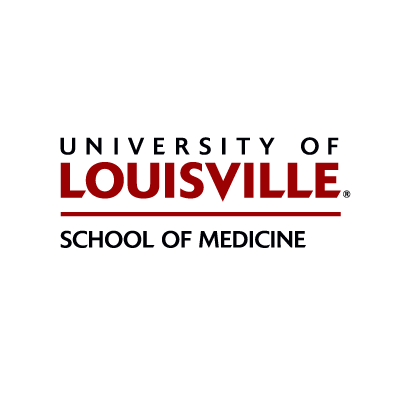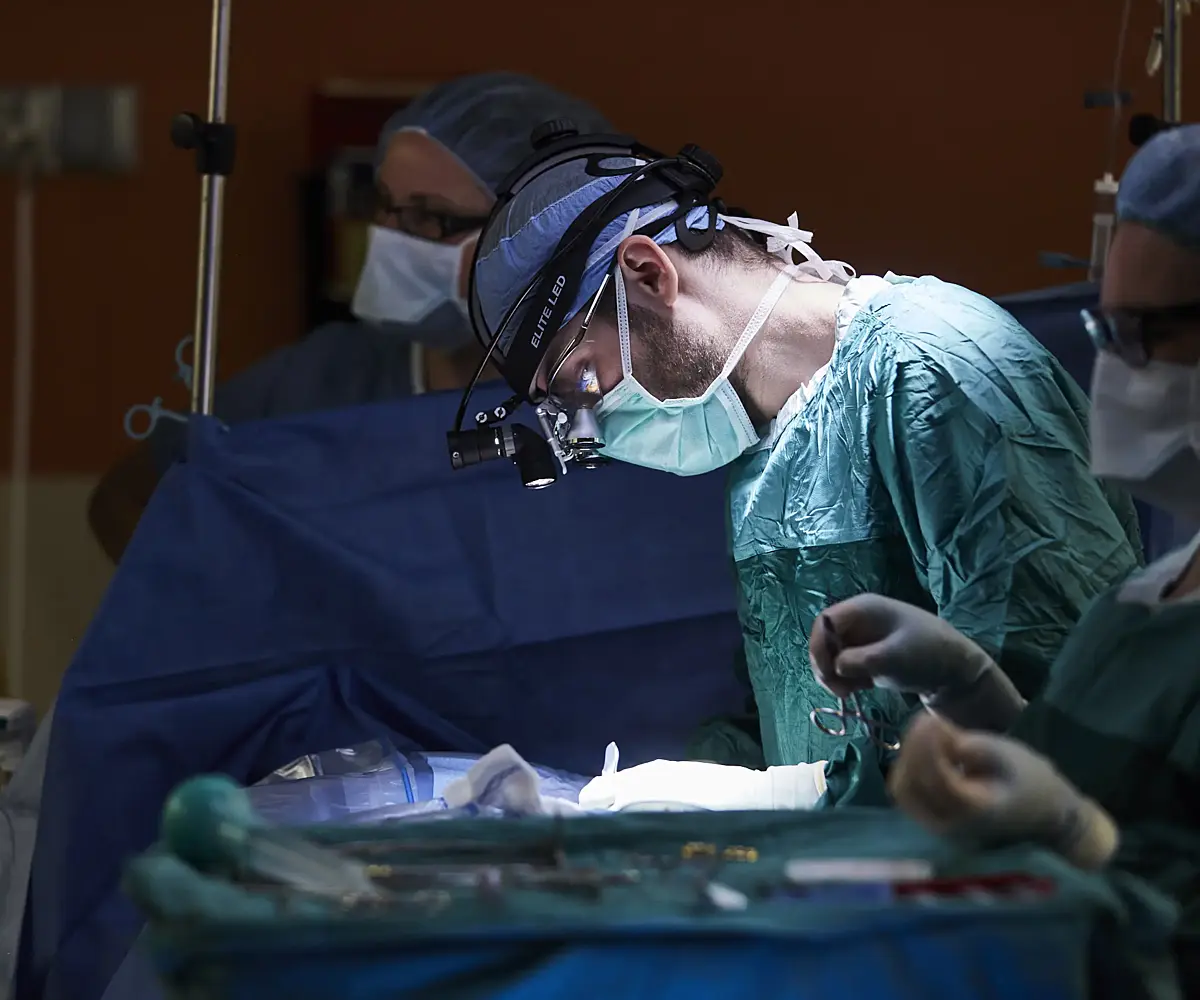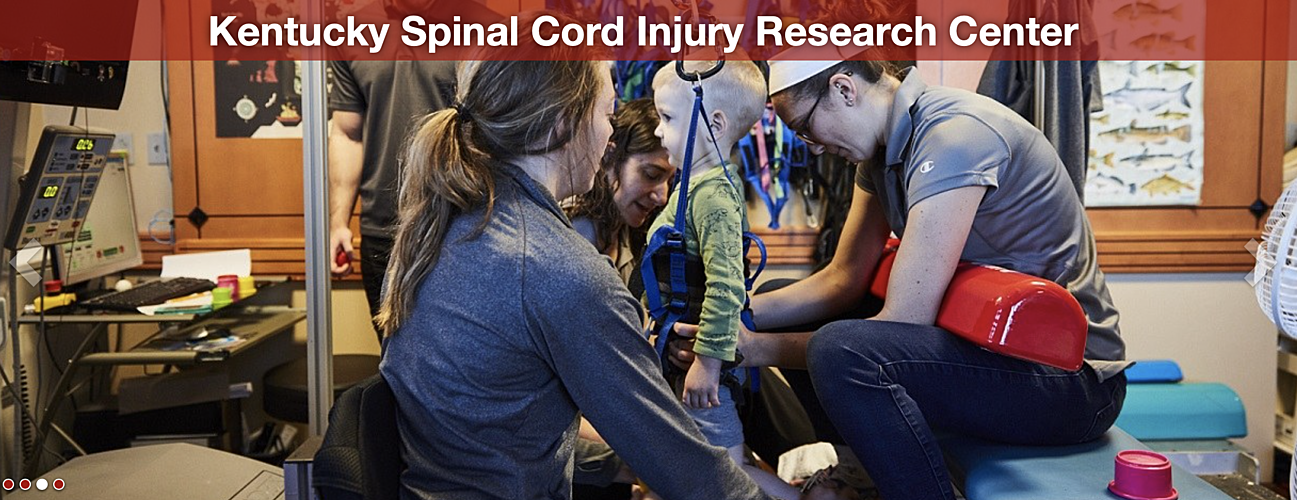
University of Louisville Neurosurgery


Minimally Invasive Neurosurgery. Maximum Patient Care.
Our neurosurgeons are experts in brain and spine care, with training in such areas as cerebrovascular disease, brain and spine tumors, traumatic brain & spinal cord injury, and peripheral nerve disorders. We provide world-class surgical expertise in the type of caring environment that patients deserve.
Minimally Invasive Surgery
Patients will experience less pain, less blood loss, and decreased hospital and recovery time thanks to our minimally invasive surgical techniques. We are committed to helping people return more quickly to happy, productive lives.
Multidisciplinary Medicine
We favor a multidisciplinary approach to patient care. Alongside specialists in neurology, otolaryngology, urology, physiatry, oncology and radiation medicine, we use shared expertise and the latest research to create individualized treatment plans. Multidisciplinary medicine is an effective approach to patient care which allows for treatment of the whole patient. For example, patients referred to us with spinal cord injuries are seen at the Spinal Cord Medicine Clinic where they are evaluated in one location by the appropriate specialists – neurosurgeon, neurologist, physiatrist, urologist, and radiologist – to provide comprehensive care.
Neurological Conditions
We treat the following neurological conditions:
Cerebrovascular Disease
Our fellowship-trained neurosurgeons treat all types of cerebral vascular disease, including:
- Cerebral Aneurysms
- AVMs
- Spinal AVMs
- Cavernous carotid fistulas
- Subarachnoid hemorrhage
- Stroke (We are the primary stroke service for Baptist Health Medical Pavilion)
Brain and Spine Tumors
We use leading-edge procedures and equipment to treat a wide spectrum of brain and spine tumors, including:
- Pituitary tumor
- Glioblastoma
- Astrocytoma
- Meningioma
- Metastatic disease
- Colloid cysts
- Craniopharyngioma
Spine Conditions
- Disc herniation
- Degenerative disc disease
- Back and leg pain
- Scoliosis
- Lumbar and cervical spinal stenosis
- Spondylolisthesis
- Vertebral Compression Fractures
Peripheral Nerve Disorder
- Carpal and Cubital Tunnel Syndrome
- Traumatic Peripheral Nerve
- Brachial Plexus
Congenital Brain and Spine Disorders
- Chiari Malformation
- Spinal Dysraphism
- Cervical and thoracic syrinx
- Hydrocephalus
Movement and Functional Neurological Disorders
- Parkinson’s Disease
- Essential Tremor
- Epilepsy
- Tic Douloureaux
- Chronic Pain
- Spasticity
Trauma
As the only neurosurgeons practicing at the region’s Level 1 Trauma Center, our surgeons are experts in the care of critically injured patients with:
- Traumatic Brain Injury
- Spinal Cord Injury
- Traumatic Peripheral Nerve Conditions
- Reflex Sympathetic Dystrophy
- Subdural and Epidural Hematoma
- Hemorrhage
- Spine Fractures
Leading Edge Techniques
Our physicians are committed to leading edge treatments for our patients. We use the latest equipment and proven techniques including:
- Stereotactic guidance for craniotomy and spine surgery
- Cardiopulmonary bypass for giant aneurysms
- Temporal lobectomy for epilepsy
- ECIC (Extracranial Intracranial) Bypass
- Expanded Endoscopic Endonasal Approach and Resection of skull base tumors
- Endovascular Treatments including coils, onyx, glue, stents, balloons, and particles
- Spine surgery including Minimally Invasive Spine Techniques, X-Stop, Standard Decompression Techniques, Discectomy and Fusion with M.A.S.T.
- Stereotactic Radiosurgery using Proton Beam Radiation and Linear Accelerator and soon, Cyberknife®
- Stereotactic Radiosurgery for spinal tumors
- Kyphoplasty and Vertebroplasty for vertebral compression fracture
- Stereotactic Radiosurgery for spine tumors
- Deep Brain Stimulation
NIH-Sponsored & International Research
We are active in world-class research and drug trials, ensuring the latest and best techniques for your patients. Some current research projects include:
- NIH-sponsored Outcomes Research in spinal conditions, cerebral vascular disease and tumors, movement disorders and trauma
- Origination and Coordination Center for NRN (Neural Recovery Network)
- NACTN (North American Clinical Trials Network)
- Riluzole drug trial for spinal cord injury
- X-Stop vs. Laminectomy National Clinical Trial
- International trial of STICH (Surgical Treatment of Intracerebral Hemorrhage)
- Epidural spinal stimulation for restoration of walking following spinal cord injury
This channel highlights scholarly work and clinical research in neurosurgery and related fields, with an emphasis on innovation in surgical techniques, multidisciplinary care, and improving patient outcomes. Only authors affiliated with the University of Louisville or collaborating on institutional research projects are eligible to submit to this channel. Please note that all submissions must adhere to the Cureus editorial guidelines.
